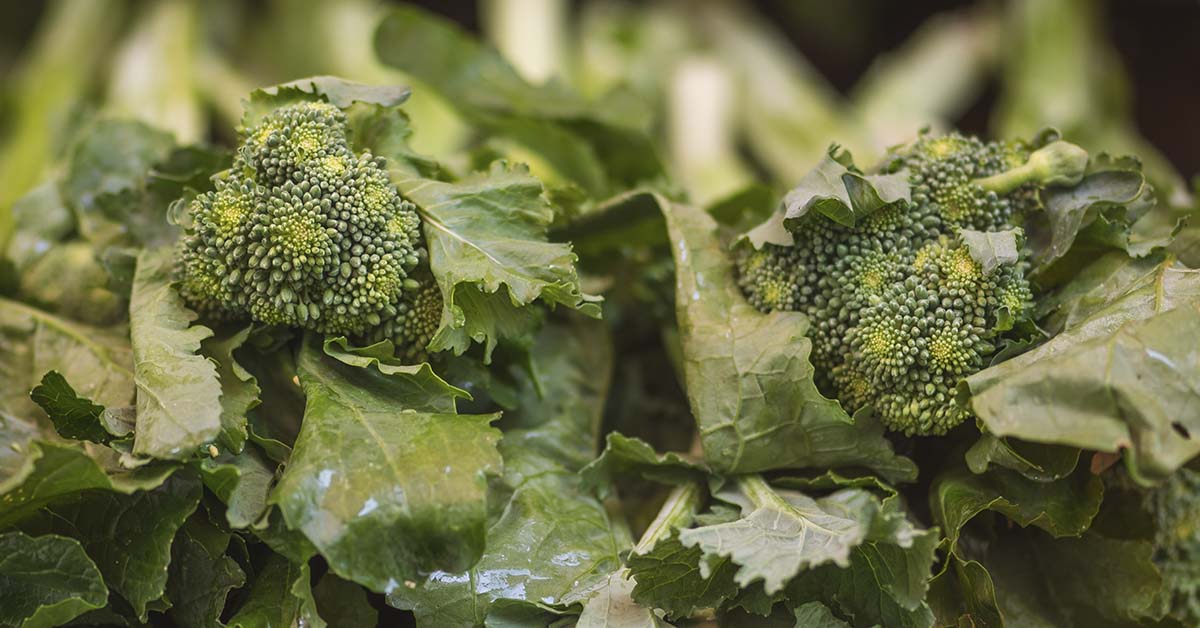You have probably been hearing “eat your veggies” since you were a young kid at your parents’ dinner table. Long has it been known that eating vegetables is an important part of health and nutrition. As the science of nutrition becomes increasingly more established, scientists discover more about the power of individual vegetables. One of the most recent discoveries is about cruciferous vegetables: Those being ones such as kale, broccoli, and other leafy greens. Scientists have discovered a molecule in these vegetables that could help protect against lung infections.
A Newly Discovered Molecule In Cruciferous Vegetables May Protect Against Lung Infections
Researchers from the Francis Crick Institute in London have made a new discovery about cruciferous vegetables. Vegetables in this family contain a protein called aryl hydrocarbon receptor (AHR) that helps the lungs to maintain a healthy barrier against viral and bacterial infection. They published their results in the journal Nature. (1)
It is important to note that AHR is not a newly-discovered molecule. Scientists have known that this protein assists with gene regulation in the body and metabolism of certain enzymes for a while. They also already knew that AHR plays an active role in stem cells and immune system regulation. It is this link to the immune system that peaked the research team’s interest.
The Power of AHR
Scientists have studied AHR for its potential use against autoimmune disorders, inflammatory disorders, and cancer, all because of its connection to the immune system. This time around, the research team focused on the barrier in the lungs that protects them against pollution and infection. There are two layers to this barrier that allows oxygen in but keeps bacteria, pollutants, and viruses out. The team studied the effects that AHR proteins have on this barrier.
“AHR is an environmental sensor that can be activated by ligands found in food or produced by bacteria living in our gut — but some toxic ligands are also derived from air pollution. AHR protects the lung by inducing gene programs known to support barrier integrity and barrier function. Which genes are directly targeted by AHR and which ones are triggered indirectly is unclear.” said lead author of the study, Dr. Andreas Wack. (2)
The Study
To determine how AHR affects this barrier, the researchers did various experiments in mouse models. They infected mice with a flu virus, and then observed how the virus damaged this lining. When they overactivated AHR, they found this damage to be much less. Furthermore, the mice with increased AHR activity were stronger throughout their illness, lost less weight, and fought off the flu better than those that weren’t. Mice that ate an AHR ligand-rich diet during their illness had better lung integrity and less lung damage than the mice who ate the control diet.
“In mice without ligands in the diet, their AHR activity levels were low to start with, so if you don’t eat ligands, you have little AHR activity,” explained Dr. Wack. “When you eat them, then AHR activity increases. This activity can be dampened by sick behavior, i.e., not eating for some days.”
Don’t Starve A Fever
Dr. Wack says that doing your best to consume AHR-rich foods when you are sick is very important, as is eating them to help prevent eating them in the first place. For many years, doctors and dietitians have said that eating these cruciferous vegetables are good for your gut and overall health. Now, however, we know that they can also help to protect your lungs, too. The following is a list of vegetables that fall under this category:
- broccoli
- cauliflower
- kale
- cabbage
- Brussel sprouts
- arugula
- Radish, including horseradish
- turnips
- bok choy
- Wasabi
While the research team agrees that more research is needed, one thing is clear: Adding some more cruciferous vegetables into your daily diet can’t hurt. So do your lungs (and the rest of your health) a favor and pick these veggies up from the store. Your body will thank you for it.
Sources
- “Endothelial AHR activity prevents lung barrier disruption in viral infection.” Nature. Jack Major, et al. August 16, 2023.
- “Could a molecule in cruciferous veggies help protect against lung infection?.” Medical News Today. Corrie Pelc. August 18, 2023.

